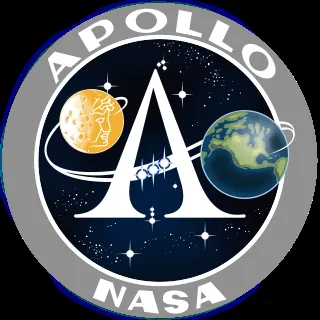Apollo program
The Apollo program, also known as Project Apollo, was the United States human spaceflight program carried out by the National Aeronautics and Space Administration (NASA), which succeeded in preparing and landing the first men on the Moon from 1968 to 1972. It was first conceived in 1960 during President Dwight D. Eisenhower's administration as a three-person spacecraft to follow the one-person Project Mercury, which put the first Americans in space. Apollo was later dedicated to President John F. Kennedy's national goal for the 1960s of "landing a man on the Moon and returning him safely to the Earth" in an address to Congress on May 25, 1961. It was the third US human spaceflight program to fly, preceded by the two-person Project Gemini conceived in 1961 to extend spaceflight capability in support of Apollo.

Some of the key events about Apollo program
- 1961The Apollo program was officially announced by President Kennedy with the goal of landing humans on the Moon
- 1961The Apollo program was initiated in response to the Soviet Union's early lead in the Space Race, creating pressure and competition.
- 1963The first Apollo command and service module was successfully launched on an uncrewed test flight
- 1967The Apollo program resumed flights after implementing safety improvements following the Apollo 1 fire
- 1967A fire during a launch pad test of Apollo 1 resulted in the deaths of three astronauts.
- 1968Apollo 8 became the first crewed spacecraft to orbit the Moon
- 1968The Apollo program faced budget cuts and public criticism due to its high cost during a time of social unrest.
- 1969Apollo 11 achieved the first crewed lunar landing, fulfilling Kennedy's goal
- 1969Apollo 12 demonstrated the ability to make a precise landing on the Moon
- 1970Apollo 13's crew safely returned to Earth after a near-disastrous mission, showcasing NASA's problem-solving capabilities
- 1970An oxygen tank explosion on Apollo 13 forced the mission to abort its lunar landing.
- 1970The program faced scrutiny over its safety protocols following the Apollo 13 incident.
- 1971Apollo 15 introduced the Lunar Roving Vehicle, expanding the exploration range on the Moon's surface
- 1971The cancellation of three planned Apollo missions (18, 19, and 20) due to budget constraints.
- 1972Apollo 16 conducted the first astronomical observations from the lunar surface
- 1972Apollo 17, the final mission of the program, set records for the longest lunar landing and total extravehicular activities
- 1972The Apollo program was criticized for its lack of diversity, as all astronauts were white males.
- 1972Environmental concerns were raised about the impact of rocket launches on the Earth's atmosphere.
- 1973The program's conclusion left many highly skilled aerospace workers unemployed.
- 1975Post-program, there were debates about the scientific value of manned lunar missions compared to unmanned exploration.
Disclaimer: This material is written based on information taken from open sources, including Wikipedia, news media, podcasts, and other public sources.





























